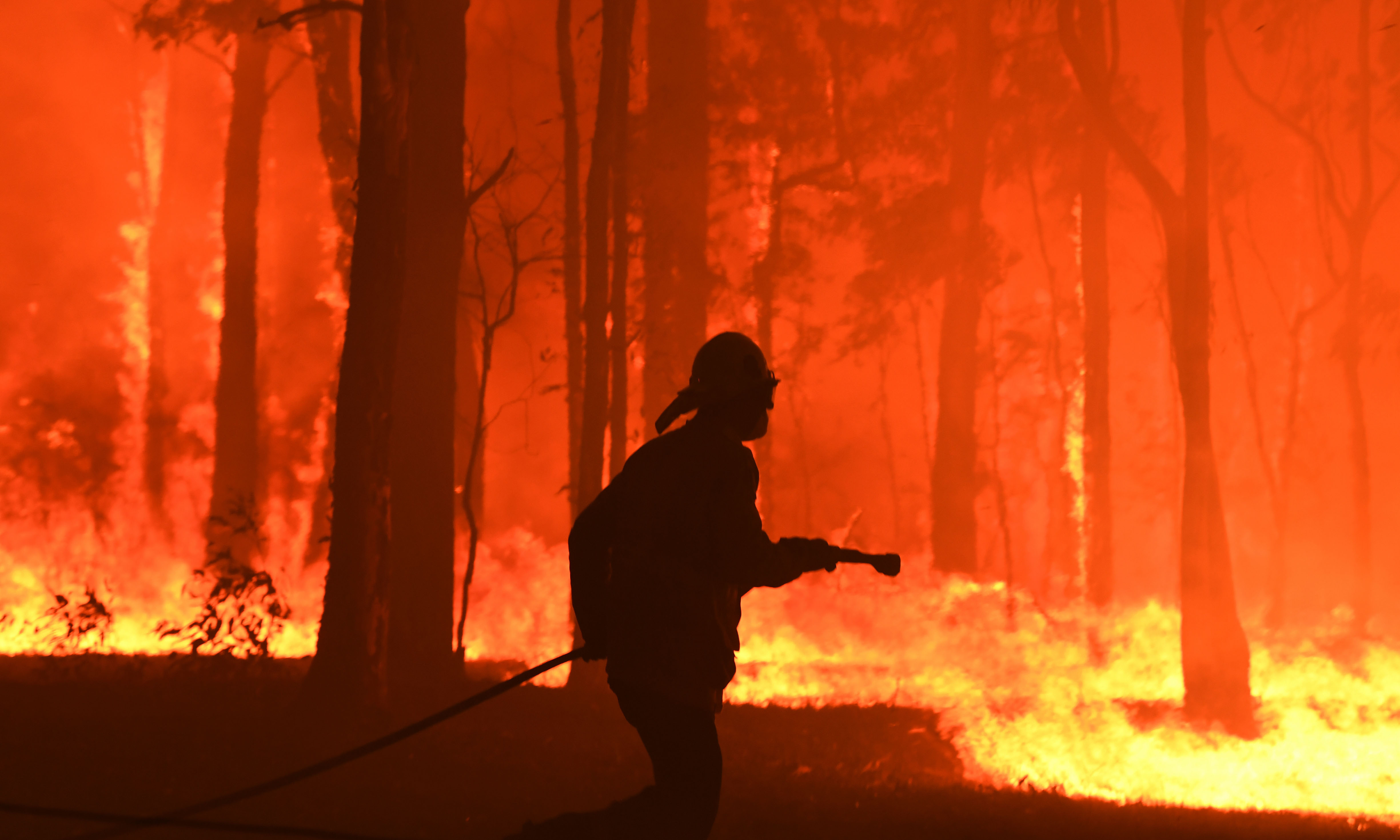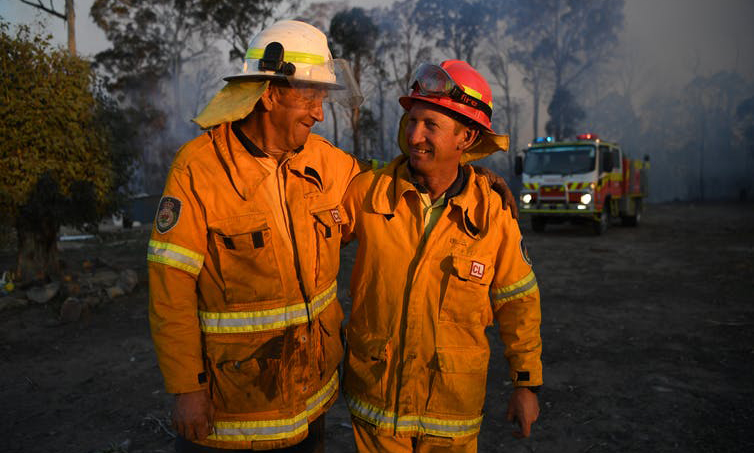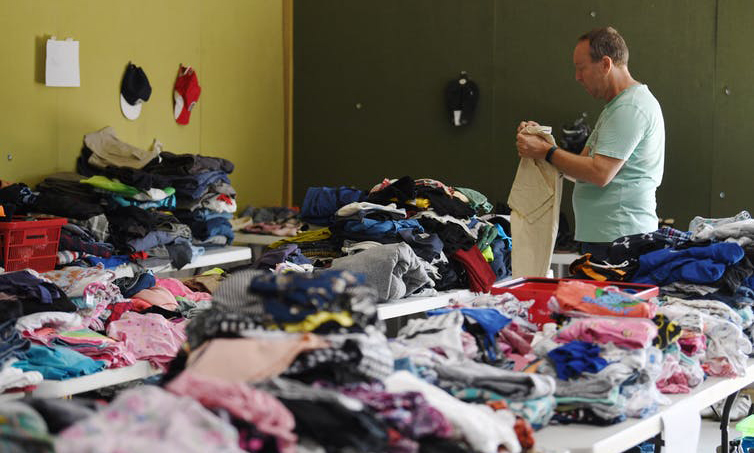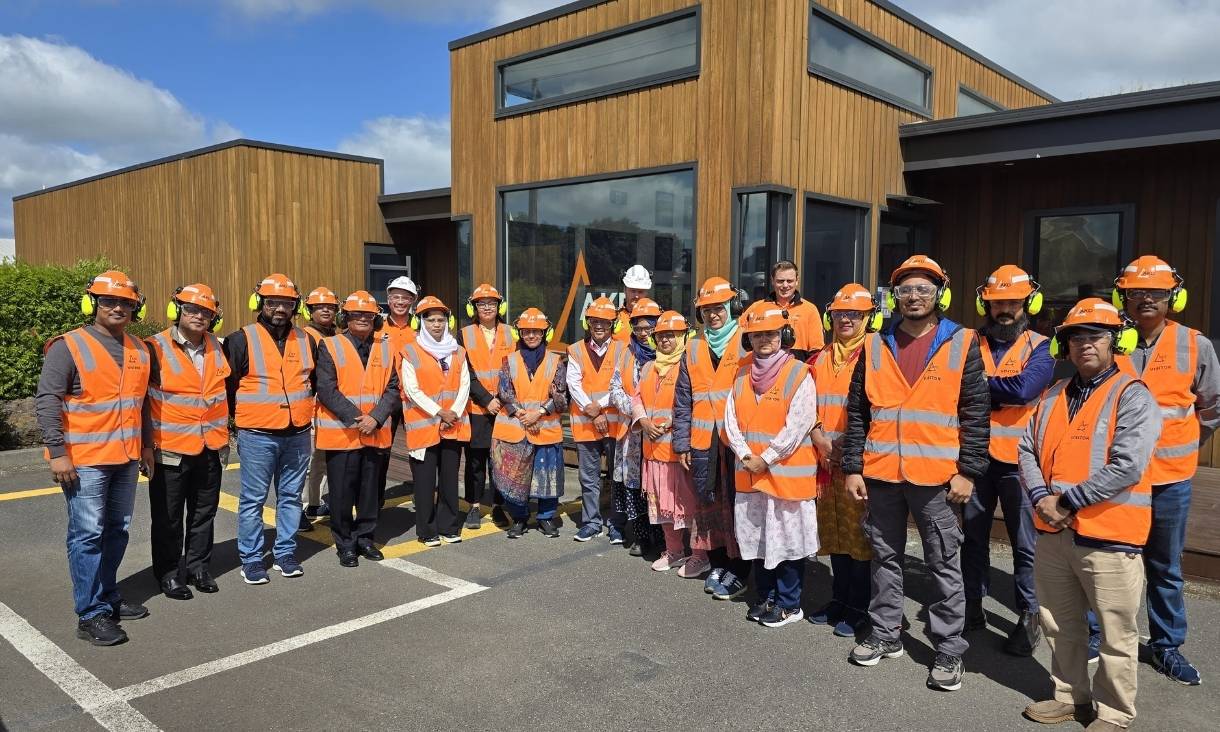Given this, it’s important for us to understand how our worsening bushfires are affecting the mental and physical health of volunteers. Is this causing burnout? And if so, is that making it more difficult for fire and emergency services to recruit new volunteers and keep the ones they have?
Challenges for volunteer recruitment and retention
Of course, the impact of today’s bushfires needs to be viewed within the context of other challenges to volunteer recruitment and retention.
Two of the key factors are greater competition for people’s time – for example, due to changes in the nature of paid work – and the increasing difficulty of balancing work, family and volunteer commitments.
The ways people choose to volunteer are also changing. Many people are choosing more flexible, shorter-term and cause-driven ways of volunteering and eschewing the kind of structured, high-commitment volunteering that is common in the emergency services.
At the same time, rural communities are facing a shrinking volunteer base as people either leave for better opportunities in cities or can no longer perform strenuous volunteering roles.
Meanwhile, a lot has been said about younger generations being less motivated by altruistic values to volunteer.
However, there is considerable evidence that younger people are highly committed to making a positive contribution to society. They are just doing it differently than their parents – they are tapping into the power of social media and working outside of formal, structured organisations.
Changes to emergency management services are also at play. One of the most significant shifts has been the professionalisation, corporatisation and modernisation of volunteer-based emergency services in recent years.
While this has undeniably brought improvements to volunteer safety and the quality of service, it has also caused headaches for volunteers in the form of more bureaucracy and additional training requirements.
There is a risk this could drive a wedge between the corporate goals of fire and emergency service agencies that focus on risk management and efficiency, for example, and their more traditional, community-based roots – the reason many people choose to volunteer in the first place.
The reasons people want to help
Even though fighting fires is obviously demanding work, it is also extremely fulfilling and rewarding. Core reasons that people choose to volunteer include helping the community, learning new skills, feeling useful and doing something worthwhile, and experiencing camaraderie with others.
In our ongoing research, we are consistently hearing that the personal fulfilment and rewards of volunteering are not being adequately communicated to the public. If they were, a lot more people would offer their services.








